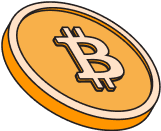How to Choose an Exchange to Buy and Trade Tezos
From trading fees to payment methods, and from security features to customer support, each aspect plays a significant role in your overall experience. Understanding these considerations will help you choose the best exchange that aligns with your trading goals and preferences.
Trading Fees
Trading fees are a critical factor to consider when choosing an exchange. These fees can vary significantly between platforms and can impact your profitability, especially if you trade frequently. Some crypto exchanges offer tiered fee structures based on trading volume, while others may charge flat rates. It’s essential to compare fees across different platforms to ensure you're not paying more than necessary for your transactions.
Security
Security is paramount when it comes to trading cryptocurrencies like Tezos. Look for exchanges that offer robust security features such as two-factor authentication (2FA), cold storage for assets, and insurance policies. Additionally, consider the exchange’s history regarding hacks and how they handle security breaches. A secure platform will provide peace of mind, knowing your assets are protected.
Accessibility
Accessibility includes both the ease of use of the platform and its availability in your region. A user-friendly interface can make a significant difference, especially for beginners. Additionally, some exchanges may be restricted in certain countries, so it’s important to check whether the platform you’re considering is available in your location and supports your local currency.
Payment Methods
The availability of payment methods is another important consideration when selecting an exchange. Some platforms offer a variety of options, including bank transfers, credit/debit cards, and even cryptocurrency deposits, while others may be more limited. The convenience and cost of using these payment methods can affect your overall trading experience, so it's crucial to choose an exchange that supports the payment methods you prefer.
Liquidity of Crypto Assets
Liquidity refers to the ease with which an asset can be bought or sold without affecting its price. High liquidity is crucial for traders who want to execute large orders quickly and at a stable price. When trading Tezos, it's essential to choose an exchange with sufficient liquidity to ensure smooth and efficient transactions, particularly during times of market volatility.
User Interface
The user interface of an exchange plays a significant role in your trading experience. A well-designed, intuitive interface can make it easier to navigate the platform, execute trades, and monitor your portfolio. Whether you're a beginner or an experienced trader, a user-friendly interface will help you focus on trading rather than struggling with the platform's design.
Reputation Amongst XTZ Traders
The reputation of an exchange within the Tezos trading community is an essential consideration. Research what other XTZ traders are saying about the platform, particularly regarding its reliability, customer service, and ease of use. An exchange with a strong reputation is likely to provide a better overall experience and can be trusted to handle your assets securely.
Support
Good customer support can be invaluable, especially if you encounter issues with your account or transactions. Look for exchanges that offer multiple support channels, such as live chat, email, and phone support. Additionally, consider the responsiveness and expertise of the support team, as this can significantly affect your experience, particularly in urgent situations.
Types of Tezos Exchanges and Trading Platforms
When it comes to trading Tezos, there are several types of exchanges and platforms to consider. Each type offers different features and caters to various trading needs, from beginners to advanced traders.
Centralized Exchanges (CEX)
Centralized exchanges are the most common platforms for trading Tezos. These exchanges are managed by a central authority that facilitates trading between buyers and sellers. They offer high liquidity, a wide range of trading pairs, and robust security features. However, users must trust the exchange with their funds, which can be a concern for some traders.
Decentralized Exchanges (DEX)
Decentralized exchanges operate without a central authority, allowing users to trade Tezos directly from their wallets. These platforms prioritize privacy and security, as users retain control of their funds. While DEXs are less prone to hacks, they often have lower liquidity and fewer trading pairs compared to centralized exchanges.
Peer-to-Peer (P2P) Platforms
Peer-to-peer platforms connect buyers and sellers directly, allowing them to negotiate and trade Tezos without intermediaries. These platforms offer greater privacy and typically support a wide range of payment methods. However, transactions may take longer to complete, and users must be cautious about dealing with unverified traders.
Brokerage Platforms
Brokerage platforms simplify the process of buying Tezos by allowing users to purchase it directly from the platform at a set price. These platforms are user-friendly, making them ideal for beginners. However, the convenience comes at a cost, as brokerages typically charge higher fees compared to exchanges.
Futures and Derivatives Platforms
Futures and derivatives platforms offer advanced trading options for Tezos, allowing users to speculate on the future price of XTZ. These platforms are suited for experienced traders looking to leverage their positions. However, trading on these platforms carries higher risks and requires a good understanding of the market.
How to Start Trading XTZ
- Sign Up on a Tezos Exchange: Choose an exchange that supports Tezos and sign up by providing your email and creating a password. Complete the verification process, which may include providing identification documents.
- Deposit Funds: Once your account is verified, deposit funds into your account using your preferred payment method, such as a bank transfer or credit card.
- Choose a Trading Pair: Select the XTZ trading pair you wish to trade, such as XTZ/USD or XTZ/BTC.
- Execute a Trade: Place an order to buy or sell Tezos. You can choose between market orders, which execute immediately at the current market price, or limit orders, which only execute at a specified price.
- Withdraw Your XTZ: After your trade is complete, consider withdrawing your XTZ to a secure wallet to keep your funds safe.
Exchange Fees When Buying and Selling XTZ
When trading Tezos, it's essential to be aware of the various fees that exchanges may charge. These fees can impact your overall profitability, especially if you're trading frequently.
Transaction Fees
Transaction fees are charged on every trade you execute on an exchange. These fees can be a percentage of the trade value or a flat fee, depending on the platform. It’s important to compare these fees across different exchanges, as they can vary significantly, especially for high-frequency traders.
Deposit Fees
Some exchanges charge fees for depositing funds into your account. These fees can vary depending on the payment method used. For example, bank transfers might have lower fees compared to credit card deposits. It's crucial to consider these fees when choosing how to fund your account.
Withdrawal Fees
Withdrawal fees are charged when you transfer your Tezos or other cryptocurrencies from the exchange to an external wallet. These fees can vary based on the currency being withdrawn and the exchange’s policies. High withdrawal fees can eat into your profits, so it’s wise to choose an exchange with reasonable fees.
Inactivity Fees
Inactivity fees are charged by some exchanges if your account remains inactive for a certain period. These fees can gradually reduce your account balance if you're not trading regularly. It’s important to be aware of these potential fees and choose an exchange that aligns with your trading frequency.
The Unique Value Proposition of Tezos
Tezos offers a unique value proposition with its self-amending blockchain protocol, which allows it to evolve and upgrade without the need for disruptive hard forks. This feature ensures that Tezos remains adaptable and resilient in the face of technological advancements. Additionally, Tezos uses a Liquid Proof-of-Stake (LPoS) consensus mechanism, which combines the benefits of proof-of-stake with enhanced flexibility and governance. These attributes make Tezos a compelling choice for developers and investors alike, influencing both the choice of exchange and trading strategies.
History of Tezos
Tezos is a decentralized blockchain platform that was launched in 2018 after a successful Initial Coin Offering (ICO) in 2017, which raised $232 million. Developed by Arthur and Kathleen Breitman, Tezos is designed to facilitate smart contracts and decentralized applications (dApps). What sets Tezos apart is its self-amending protocol, which allows the network to upgrade itself without the need for hard forks. This unique feature has positioned Tezos as a flexible and forward-thinking blockchain in the cryptocurrency ecosystem.
The Future of Tezos in the Cryptocurrency Market
Tezos has positioned itself as a forward-thinking blockchain platform with its self-amending protocol and focus on on-chain governance. The future of Tezos in the cryptocurrency market looks promising, with ongoing developments in smart contract functionality, increased adoption, and partnerships with major companies in the finance and tech sectors. As the blockchain ecosystem continues to evolve, Tezos may become a key player, particularly in areas like decentralized finance (DeFi) and non-fungible tokens (NFTs). This potential makes Tezos an intriguing option for long-term investors and traders alike.
Other Altcoins You Can Trade
As you dive into the self-amending blockchain capabilities of Tezos, it's also worth exploring a broad array of other altcoins that showcase distinct strengths in the crypto world. These coins each play a unique role, whether in advancing decentralized finance, improving scalability, or enhancing privacy. By diversifying your investments with these alternatives, you can engage with different facets of the blockchain ecosystem. Consider adding to your portfolio with the following altcoins:
FAQ: Tezos Exchange Platforms
What are the risks of trading Tezos on decentralized exchanges?
Decentralized exchanges (DEXs) allow users to trade directly from their wallets, providing greater security and privacy. However, they often have lower liquidity and fewer trading pairs than centralized exchanges, which can lead to higher slippage and slower trade execution. Additionally, since there is no central authority, users are fully responsible for securing their funds, which can be risky for those unfamiliar with crypto security practices.
What should I consider when choosing an exchange for large Tezos trades?
When making large Tezos trades, consider the exchange's liquidity, as high liquidity ensures that your orders can be filled without causing significant price fluctuations. Additionally, check the platform's trading limits, fees for large transactions, and the availability of advanced trading features like order types and API access, which can be beneficial for managing large trades effectively.
How can I ensure my Tezos funds are secure on an exchange?
To secure your Tezos funds on an exchange, choose a platform with robust security features such as two-factor authentication (2FA), cold storage for assets, and a solid track record of handling security breaches. Additionally, avoid storing large amounts of Tezos on the exchange for extended periods and consider withdrawing your funds to a secure, personal wallet after trading.
What is the difference between spot trading and futures trading for Tezos?
Spot trading involves buying and selling Tezos at the current market price for immediate delivery. In contrast, futures trading involves contracts to buy or sell Tezos at a predetermined price on a future date. Futures trading allows for speculation on the future price of Tezos, often with leverage, but it carries higher risks due to price volatility and potential for significant losses.
Can I buy Tezos directly with fiat currency on all exchanges?
Not all exchanges support direct purchases of Tezos with fiat currency. Some platforms require you to first purchase a more widely accepted cryptocurrency, like Bitcoin or Ethereum, and then trade it for Tezos. However, many major exchanges now offer direct fiat-to-Tezos pairs, making the process easier for those looking to invest in XTZ.
What are the advantages of using a peer-to-peer platform to trade Tezos?
Peer-to-peer (P2P) platforms allow users to trade Tezos directly with each other, often with more flexible payment options and greater privacy. These platforms can be advantageous for users in regions with limited access to centralized exchanges or those who prefer direct transactions without intermediaries. However, users must be cautious and verify the trustworthiness of their trading partners to avoid scams.
How does Tezos staking work on exchanges?
Some exchanges offer Tezos staking, allowing users to earn rewards by participating in the network's consensus mechanism. By staking their XTZ on the exchange, users can receive a share of the network's rewards without needing to manage their own validator node. However, staking on an exchange means trusting the platform with your funds, which may not offer the same level of control as staking directly from a personal wallet.
Are there exchanges that offer insurance for Tezos funds?
Some exchanges provide insurance for user funds, protecting against certain losses due to hacking or other security breaches. This insurance can offer peace of mind, particularly for users holding significant amounts of Tezos. However, the extent of coverage varies by platform, so it's important to review the specific terms and conditions of the insurance policy offered by the exchange.
Can I trade Tezos on mobile apps?
Yes, many exchanges offer mobile apps that allow you to trade Tezos on the go. These apps typically provide the same functionality as their desktop counterparts, including real-time price tracking, order placement, and portfolio management. Trading on a mobile app can be convenient, but ensure the app has strong security features and is regularly updated to protect your funds.
How do I report taxes on Tezos trades?
Reporting taxes on Tezos trades depends on your country's regulations. Generally, profits from trading Tezos are considered taxable income, and you may need to report capital gains or losses. Keeping detailed records of all your transactions, including purchase prices and sale prices, is essential for accurate tax reporting. Consider using crypto tax software or consulting with a tax professional familiar with cryptocurrency regulations to ensure compliance.
Conclusion: The Best XTZ Buy & Sell Platforms Ranked by Bitcoin.com
Choosing the right platform to buy and sell Tezos (XTZ) is crucial for a successful trading experience. Each exchange offers different features, so it's essential to consider factors like fees, security, and user interface. Remember, our rankings are regularly updated to reflect the latest developments, so check back frequently to stay informed on the best platforms for trading XTZ.
Business & Partnership Enquires
For business or partnership queries, please contact us through affiliates@bitcoin.com. Our marketing experts will assist you as soon as possible.





























